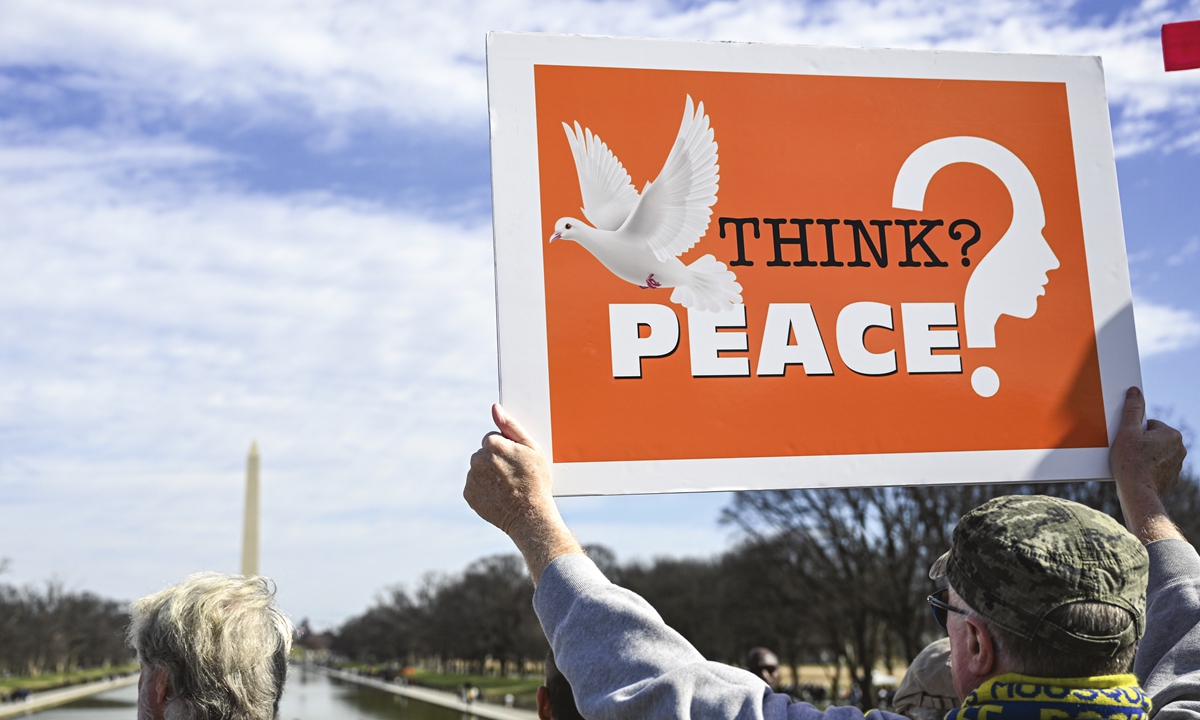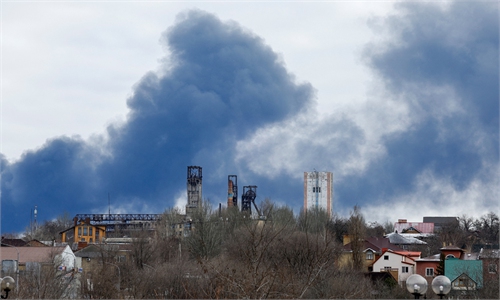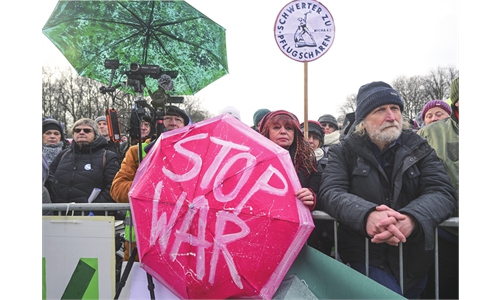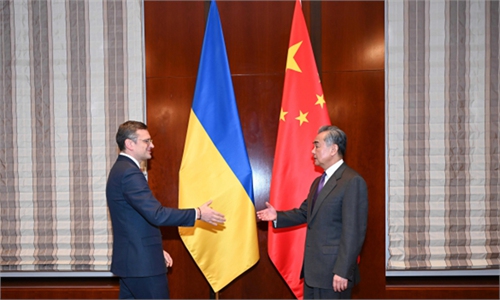2-year mark of Russia-Ukraine conflict: Tragedy could have been avoided: Global Times editorial

Several hundred protesters gather for an anti-war demonstration to oppose US military aid to Ukraine in front of the Lincoln Memorial in Washington DC on February 19, 2023. Photo: VCG
February 24 marks the two-year anniversary of the outbreak of the Russia-Ukraine conflict. The US and Europe are still considering imposing additional sanctions on Russia, and the world has yet to see where the way to cease fire and stop fighting is. Just like its seemingly sudden outbreak, this conflict, the largest regional war over the past two decades, has repeatedly exceeded the expectations of the international mainstream understanding in terms of its duration, extensive involvement, severe consequences, and profound impact. Regrettably, despite two years of bloodshed, the involved parties still lack sufficient introspection.
The evolution of the Russia-Ukraine conflict to the present day is a tragedy in international politics and a tragedy for the world as a whole. Returning to a more rational political analysis, it is difficult to say that this tragedy was unavoidable. The Ukraine crisis did not emerge overnight; it has a complex historical context and a prolonged development process. During this period, there were numerous opportunities to alleviate or even resolve the crisis, but these opportunities were missed. The situation escalated and deteriorated step by step until the conflict erupted. In summary, the root cause of the Russia-Ukraine conflict lies in the long-term imbalance of the European security structure after the Cold War, where the US and its European allies did not respect or attach importance to, let alone properly address, the legitimate security concerns of Russia, a major regional power. Several US strategic thinkers such as Henry Kissinger and John Mearsheimer had long warned American decision-makers to pay attention to this. However, driven by inherent arrogance, self-righteousness, and a selfish attitude, the US and the West promoted NATO eastward expansion without considering the unique historical and geographical sensitivities of Russia and Ukraine. This ultimately led to an uncontrollable situation.
To some extent, this is a conflict where there are no winners, and everyone ends up losing. Even within the camp of the US and the West, the most conservative opinions have to admit that the sanctions against Russia have not achieved results and, in fact, have failed. According to statistics, Germany alone has incurred losses of up to 200 billion euros due to the Russia-Ukraine conflict. Under the pressure, Western societies are experiencing a rising sentiment of "Ukraine fatigue," public opinion is wavering, and the prospects for military support to Ukraine are uncertain.
The political solution to the Ukraine crisis and the early initiation of negotiations are highly demanded by the international community. The current issue is whether the US and the West are willing to face and acknowledge it. A recent survey conducted by the Global Times Research Institute in 20 countries shows that the majority of respondents support resolving the Russia-Ukraine conflict through peaceful negotiations, with support rates exceeding 60 percent in Germany, France, and the US. A survey by the European Council on Foreign Relations also shows that approximately 37 percent of the respondents believe that the war will end through negotiations, and 41 percent of respondents are willing to urge Europe to persuade Ukraine to start negotiations with Russia. This is enough to illustrate the problem.
The China-initiated Global Security Initiative points out that the legitimate security concerns of any country should be taken seriously and properly addressed, and should not be ignored or systematically violated for a long time. Any country seeking its own security should also consider the legitimate security concerns of other countries. The US and its European allies' obsession and pursuit of group politics and camp confrontation cannot make countries outside their groups and camps feel secure. The biggest lesson the Russia-Ukraine conflict has taught the world is that security must be shared, otherwise it will inevitably lead to intractable security dilemmas.
Some people say that the US drank too much at the "banquet" celebrating the end of the Cold War, and they still haven't sobered up. The transatlantic group between the US and Europe, which continues to operate with Cold War mechanisms and thinking, deals with Russia in a condescending manner, with many policies lacking vision. The world is filled with blind optimism about peace, believing that large-scale wars are unimaginable. The conflict between Russia and Ukraine shattered this illusion, but it did not lead the US and the West to reflect on and make adjustments. As the Russia-Ukraine conflict approaches its second anniversary, the need for peace talks and negotiations becomes more urgent, and the international community should make every effort to end this bloody conflict as soon as possible. Especially for the US and the West, who promoted and escalated this tragedy due to their own issues, they must now make greater efforts to bring about its end.



